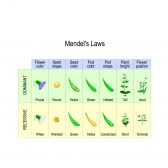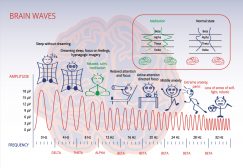Definition
noun
Growth or movement of a cell or an organism in response to an electric field
Supplement
In general, tropism is an orienting response of an organism to a stimulus. It often involves the growth rather than the movement of an organism. The response exhibited by the organism to the stimulus is mostly involuntary, which means it cannot go either towards or away from the stimulus source as in taxis. In tropism, the response of the organism is often by its growth rather than by its movement. It may grow either towards or away from the stimulus.
Electrotropism is one of the many forms of tropism. It is a response to an electric field. Different types of cells have been reported to show electrotropism. Neurons, myocytes, fibroblasts, epithelial cells, pollen tube, spores, and green algae are some of the cells that were reported to respond either through growth or migration when exposed to an exogenous electric field.1, 2
Word origin: Latin electrum, Ancient Greek ḗlektron (“amber”) + tropism
See also:
Reference(s):
1 Robinson, K. (1985). “The responses of cells to electrical fields: a review”. The Journal of Cell Biology 101 (6): 2023–2027.
2 Jaffe, L. F. & Nuccitelli, R. (1977). “Electrical controls of development”. Annual Review of Biophysics and Bioengineering 6: 445–476.







